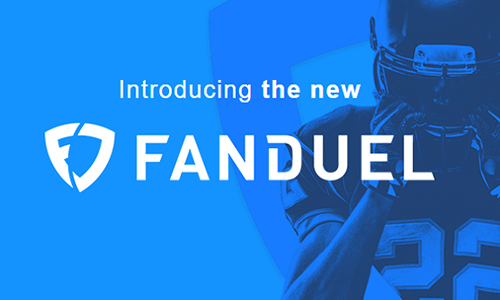NY DFS Update: Release of Fanduel Employee Playing Policy Strengthens Class-action Claims
Yesterday’s filing for an indictment against DFS (daily fantasy sports) market giants FanDuel and DraftKings by New York State Attorney General Eric T. Schneiderman adds new levels of complexity to the legal battleground now facing the fledging DFS industry within the US. Not only will the pending New York State lawsuit likely make it more difficult for the DFS sites to retain their current size or expand within the US market, but it will also add fuel to the class-action fire already facing the two companies, perhaps even triggering a second wave of consumer complaints.
 The reason for this is the release, as an appendix accompanying yesterday’s injunction filing, of an internal FanDuel employee document which will likely be portrayed as a template for how employees of that site were virtually instructed on how to use their insider advantage in moderate ways while competing against more casual players on other sites. Employees of FanDuel and DraftKings notably and prominently competed against players on each other’s sites, though that practice was curtailed after a public furor arose over DraftKings employee Ethan Haskell’s $350,000 score in a major NFL contest on FanDuel.
The reason for this is the release, as an appendix accompanying yesterday’s injunction filing, of an internal FanDuel employee document which will likely be portrayed as a template for how employees of that site were virtually instructed on how to use their insider advantage in moderate ways while competing against more casual players on other sites. Employees of FanDuel and DraftKings notably and prominently competed against players on each other’s sites, though that practice was curtailed after a public furor arose over DraftKings employee Ethan Haskell’s $350,000 score in a major NFL contest on FanDuel.
Haskell himself was specifically exonerated by DraftKings regarding his possible use of DraftKings’ user data regarding that contest, but the company never addressed whether Haskell or other employees had used such data in other contests. Over at FanDuel, employee Matthew Boccio was named as a co-defendant in one of the class-action cases filed last month. Boccio was a big, high-volume winner in DFS contests at DraftKings, and he has been described as a “model employee” at FanDuel.
The problem that FanDuel now faces is that the employee document that emerged yesterday now paints the company as actively promoting its employees’ efforts in competing unfairly against casual DFS players even if it’s being done on other sites. DraftKings will face the same heat as well, if a similar document from within that company ever emerges.
The document in question is called the “FanDuel Employee DFS Information and Playing Policy,” and this writer believes it’s going to be a big thorn in the side of FanDuel’s ongoing class-action legal defense. The entire exercise was rationalized under the concept of “Playing on other sites helps employees do their jobs better,” but a thorough reading of the three-page document suggests an alternate meaning: “Go ahead and make money elsewhere, but do it in moderation, so as not to arouse suspicion.”
Here’s the initial section on “Goals,” or what the FanDuel policy was designed to accomplish:
Goals: These outline what we’re hoping to accomplish by asking you (and other employees) to agree to this policy.
-Limit ability of employees to exploit “inside information” such as the picks of top users, or the win rates of potential opponents.
-Reassure any concerned site users that employees aren’t exploiting inside info.
-Reduce chance of users questioning ability of employees to exploit inside info against them when they play on other sites.
Big problems, right from the start. When you’re talking about “limiting” or “reducing” access, you’re admitting that the access exists, and that the information has the potential to be used by employees elsewhere in unfair ways.
From there it’s on to “Principles,” or what passed for them within FanDuel’s corporate culture:
Principles: These are some of the factors that played into the specific set of rules that we’re asking you to agree to.
-Playing on other sites helps employees do their jobs better
-‘Do no harm’ through play on other sites, so users are less likely to be suspicious or angry.
-Minimize internal flow of exploitable information where possible, so that there are fewer opportunities for exploitation.
-We hire people we trust, so we don’t have any scandals.
-This document should provide clarity to employees on what is and isn’t acceptable.
“Do no harm” is supposed to mean what, exactly? Play to lose? Don’t win too much? Hide your winnings as efficiently as possible? The answers to some of those questions do appear in what follows in the document, in ways the company won’t be happy have been exposed. Onward.
Risks: These are some of the things that could go wrong if we didn’t have a policy or if the policy wasn’t followed.
-Employees copying user’s picks. Although this is the one that users sometimes ask about, it isn’t much of a risk because the salary structures on each site are completely different. In addition, there are differences in scoring and roster configurations. At best, employees might get an idea of a player to research from a top user’s lineups…but that kind of information is available lots of places.
-Employees targeting weak users as opponents on other sites. This seems to concern users less, but is more of a real threat. In fact, in a sense, it is happening already. Information that is known can’t be unknown, so it’s important that we put some controls in place to limit it.
-Leakage of personal information (including win rate) of users outside of company.
There’s less in that section of a legally dangerous nature, but the true minefield looms:
Internal Controls & Guidelines: These are rules about how you will treat confidential information.
-Only discuss our users’ success and lineups where necessary. The less awareness of this information internally, the less chances for exploitation.
-There is an expectation that employees will only look up info such as user lineups or user win rates where needed to do job.
Wow to that last one. This implies that at FanDuel, there have been no specific controls over access to user data, and it’s been available to all on some sort of honor system.
Rules for Employee Play on Other Sites:
-Never be among the top five players by volume on any one site (based on site leaderboards). Never be among the top ten overall on the RotoGrinders leaderboard. Top players frequently become targets for accusations by other users.
-Never account for more than 2% of entries in any tournament of more than 1,000 entries. Never account for more than 5% of entries in any tournament of more than 100 entries. Players who swamp big tournaments with entries frequently become targets of accusations.
-Don’t be the 2nd person into a head to head contest against the same opponent in more than one contest per day. This rule will greatly limit the ability to exploit information about user performance, and will also limit the likelihood of complaints from users.
-Never use information gained from viewing users’ lineups.
-Seek to avoid playing anyone whose lineups you saw for that time period.
By quantifying some of these things and specifying that it’s necessary to do so to avoid arousing suspicion and accusations among casual players, it says (in this writer’s opinion) that FanDuel is tacitly admitting that its employees have access to information that provides a competitive advantage and that they are encouraging the application of that information on competing sites, largely DraftKings. That’s going to be big trouble in these legal cases down the road, both amid the consumer class-action filings and regarding AG Schneiderman’s claims of fraud and misrepresentation by the company.
Though it’s only a brief, large-type, three-page form, it’s a highly damaging document. And it concluded with a demand to FanDuel’s employees to provide their usernames on all other DFS sites, along with agreeing to a 12-month “playing on FanDuel” non-compete following termination of employment for any reason. It’s very odd that FanDuel would be more worried about former employees coming back to play on FanDuel than they would be about those employees heading off to work for other companies.




















knowing specific users’ picks/lineups for employee play on Employee or Other site really is akin to knowing opponents hole cards. If you have any quant reasoning skills, you can aggregate data from several winning users’, copy lineups exactly and/or switch out 1-2 players to multi-enter lineups that beat non-employee lineups given a number of possible nightly outcomes. It was a game of skill until employees entered gpps with even the possibility of knowledge of users’ specific lineups before the start time. Literally, I used to wait until 1 minute before games started to set actual lineups because I suspected this but then stopped as I thought I was just being paranoid. Guess I was right.